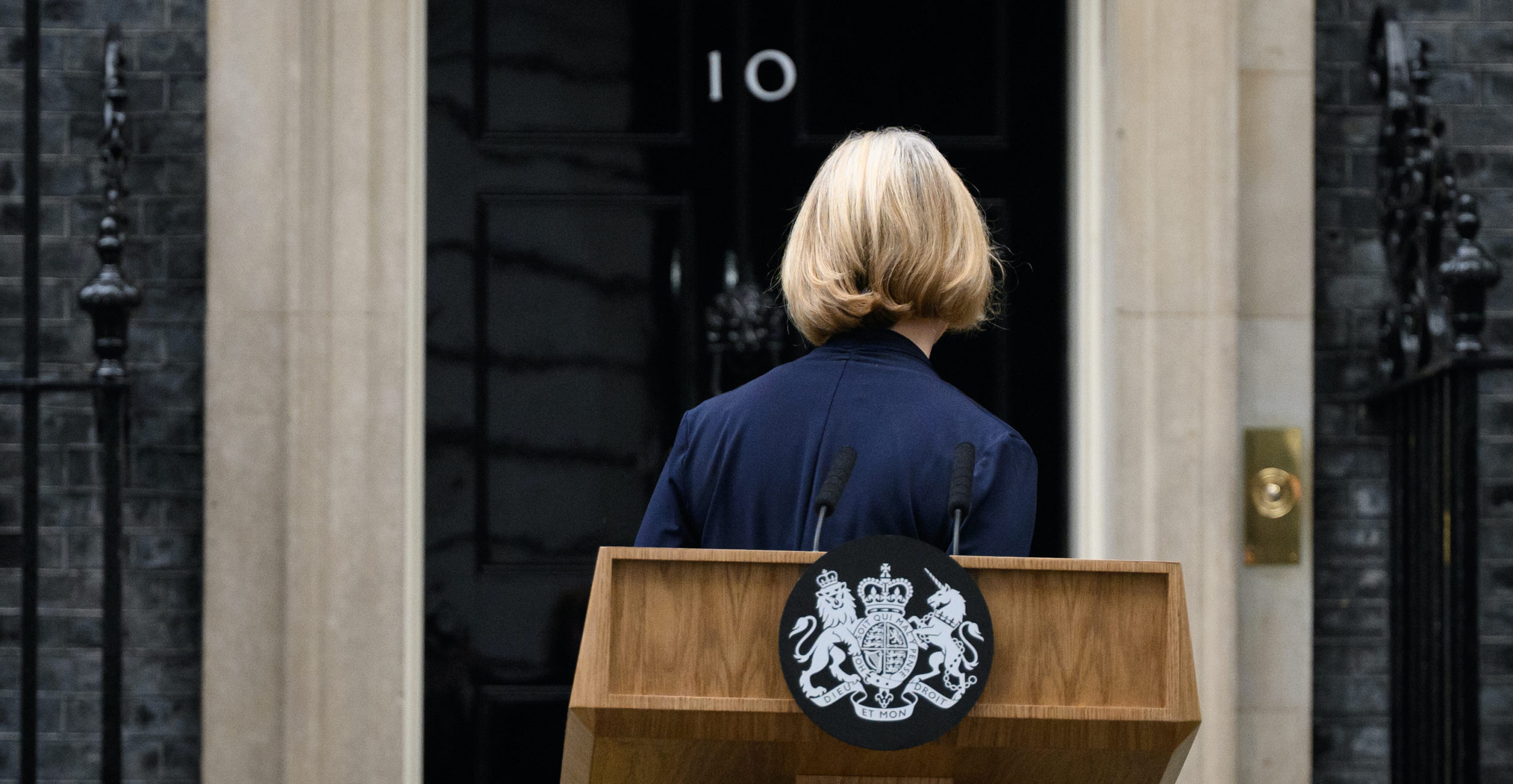The speech was as short as Liz Truss’s tenure as Prime Minister. More of a gobbet, a bit, a punchline. Impaled by rising mortgage rates, and her decision to employ Jacob Rees-Mogg as some sort of nightclub heavy last night, Truss resigned from a job she was never fit to hold.
We can expect the Conservative Party to flee from everything Truss set out in the last 45 days. It does not matter whether it is book writer Penny Mordaunt, Rishi I told you so Sunak, shy Winston Churchill fan Boris Johnson, or alleged unity candidate Ben Wallace who takes over. None of them will go near the Truss agenda. It will be buried underground like radioactive waste.
The difficulty here is that Liz Truss was… right… about growth. Ten growth-less years have left our island as Tokyo hitched uneasily to Romania. She wanted to overhaul planning laws. She wanted to lean into Britain’s strengths. These do not involve exporting physical things, romanticising the North and the regions, real ale, and living, as some commentators have suggested, a “Hobbiton” existence post-Brexit. Without growth Hobbiton goes out of business.
Our strengths, as they almost always have been, are centred on London. On financial and professional companies, and on the frictionless ease of conducting business in a world megacity. Could these strengths be parleyed into an economy that grows 2.5% a year? That is an open question. Perhaps crisis, not growth is the new baseline. But after Truss we may never find out.
There will be talk of a return to pragmatism in coming days. The next Tory leader may return to the popular 2019 manifesto — earthily concerned with ‘real people’ in ‘real places’, ‘sensible economic management’ as Neil O’Brien put it earlier today, and new jobs (probably in the public sector) and infrastructure in regional Britain.
None of that is pragmatism. It is the false hope that economic reality and the weight of every century in which this country has been dominated by the South-East of England can be overturned. It cannot, and it won’t be. The ‘pragmatists’ will fail — alongside every other attempt to make the British economy ‘fairer’ that has tried and failed in the last quarter-century.
Truss goes down in history as a bizarre footnote. A Thatcher-larping fantasist whose medicine critically maimed the patient she was supposed to be caring for. Her cabinet was a joke, her policies were unsubtle, and she ended up rejected by the markets she spent her life worshipping. But that does not mean her diagnosis for the patient was wrong.










Join the discussion
Join like minded readers that support our journalism by becoming a paid subscriber
To join the discussion in the comments, become a paid subscriber.
Join like minded readers that support our journalism, read unlimited articles and enjoy other subscriber-only benefits.
Subscribe